- Home
- Jennifer Ashley
The Seduction of Elliot McBride Page 17
The Seduction of Elliot McBride Read online
Page 17
Mahindar passed her on her way downstairs, he heading up to Elliot. The man seemed to know exactly when Elliot would need him.
Juliana stopped him on the landing. “Mahindar,” she said. “Thank you. For all you’ve done.”
Mahindar blinked. “I’ve barely started, memsahib. There is much yet to do today.”
“I meant about Elliot. For looking after him. For taking care of him. You didn’t have to.”
Mahindar shook his head. “He needed looking after. Still needs looking after. When we found the sahib, he was wandering miles from his house, half dead from thirst and exposure. We brought him home. We could not let him die.”
“Not everyone would be that kind.”
“I was raised to always give aid to the unfortunate. And the sahib, at one time, did me a good service. He took me away from a man who treated me shamefully.” Mahindar smiled. “He even punched that other man in the face. My wife, she liked that. But we would have helped the sahib regardless. He is, in the truest sense, a good man.”
“I’ve always thought so.” Juliana paused. “You don’t know how he escaped from whatever awful place he was in, do you?”
“No, memsahib. He has never told me the whole story. Only bits and pieces.”
Juliana stood aside for two men who were waiting to pass with a rolled-up carpet, and signaled them to proceed. Now was not the time to ask for Elliot’s history, and besides, Juliana wanted Elliot to tell her himself.
“Thank you, Mahindar” she said again, sincerely, and went back downstairs to her lists and letters.
Juliana was pleased to find that while she’d been upstairs with Elliot, Hamish had brought in the post, including all kinds of news and notes from her family. Juliana took the post with her to the dining room, and settled in to indulge herself with it.
Ainsley wrote a nice long, chatty letter that only Ainsley could write. In it she said that she understood why Juliana had wanted them to stay away for a time, but that they’d be back for her midsummer fête, along with the entire Mackenzie family. She also reassured Juliana that the wedding gifts had gone back, except for those from people who were perfectly happy for Juliana and Elliot to keep what they’d sent. Those gifts would be arriving at Castle McGregor by courier later in the week.
Ainsley ended by professing gratefulness for Juliana marrying her troubled brother, and her certainty that Juliana would have a good effect on him.
Elliot’s brother Sinclair wrote to both her and Elliot, declaring that he was happy with the turn of events. Sinclair, who was two years older than Elliot, said he would attempt to attend their midsummer fête, but he was always kept busy in London, not only in court, but in taking care of his two children. They went through a new governess every week. Sinclair would be kind and resist the temptation to foist the children off for the summer on Elliot and Juliana—Elliot and his new bride needed time to get to know each other before the holy terrors of the McBride family descended upon them. Sinclair concluded that he’d foist them off on Ainsley instead.
Juliana smiled as she finished the letter. Sinclair had always been good-natured, and he’d deeply loved his wife, who’d been taken from him so young, leaving him two children to raise on his own.
Juliana’s father wrote in his understated way that he was glad that Juliana seemed to be happy. Implicit in the letter was the promise that, if Juliana should prove to become unhappy, she could return home with no questions asked. Mr. St. John would even enlist the best legal help on her behalf in such a case.
Any other person might find this letter cool, but Juliana knew her father. He was a man of deep feeling, but he had decided long ago never to bother anyone else with those deep feelings. He was the epitome of the calm and stern Scot, expecting the worst, but quietly accepting the best if it should happen to come.
Gemma’s letter was the longest. Juliana loved in Gemma the fact that she did not believe in keeping anything secret for anyone’s good. She was forthright and honest, and if others found her opinions too abrupt, at least they always knew where they stood with her. The polite lie was not for Gemma St. John. She believed in unvarnished truth, for good or ill.
I must tell you what people are saying so you will be prepared upon your return to Edinburgh. Not everyone in the world believes this, but I have heard put about that your swift choice to marry Elliot shows that you are no different from your mother. All the work you have done throughout your life to prove you are not like her counts as nothing for vicious gossips such as Lady Gascogne and Mrs. Bassington-Smith and ladies of like mind.
I, being me, could not let that pass. I told Mrs. Bassington-Smith that your mother indeed was a scatterbrain, and we all knew it, but that you were as unlike her as a flower is to cheese. I said that you had been wise to accept Mr. McBride’s timely proposal, and now have a husband and home of your own, and all’s well that ends well.
Well, I shut her up, as you can imagine, but I know they rehearse this idea out of my hearing. One cannot have society without disparagers such as these, I know, but I thought I’d warn you. However, you do have your champions, including me, who believe you had a lucky escape from Mr. Barclay. As for opinion about Mr. McBride, everyone can only declare what a fine man he is, and no one can deny that he comes from an utterly respectable family.
Of course, they add, it’s a pity that he’s mad…
Juliana finished the letter, half uneasy, half reassured. She pictured the rather pretty Mrs. Bassington-Smith, wife of a high court judge, her black hair in its perfect ringlets, declaring over her waving fan that Juliana was no better than her mother.
Juliana’s temper stirred. Really, it was no one’s business why she’d married Elliot, or how they were getting on. Mrs. Bassington-Smith hadn’t been on Juliana’s guest list for the midsummer ball, and Juliana determined that the woman would not be added to any other list from here on out.
And Elliot wasn’t mad. Not really. He’d been disturbed by the terrible things he’d endured, and he was trying to recover.
Juliana tamped down her irritation in order to answer the letters, soothing her temper by writing first to the people of whom she was most fond. She wrote also to merchants in Aberdeen and Edinburgh, ordering materials for the house, the fête, and the ball.
Elliot had told her, through Mahindar, that she could buy whatever she wanted or needed, with an open-ended account. Juliana, with the frugality and efficiency she’d strived to learn since girlhood, looked for the best things she could for the very best price.
By the time she’d finished her correspondence and emerged to have Hamish carry it to the village, it was time for luncheon, which she ate informally with Priti. Priti had been taught table manners, Juliana saw, holding her fork and spoon properly, eating only her bread with her fingers.
Juliana’s heart warmed as she watched her. Who couldn’t love this child, with her wild black hair and winsome smile, her prattling talk, in a mix of English and Punjabi? Her eyes were deep brown, but she had the look of Elliot. She would be lovely when she was grown, and Juliana vowed to watch over her every step of the way.
After their luncheon, Channan arrived to lead Priti back to the kitchen. Priti was glad to go, to play again not only with the goat, but with her other new friend—the setter who seemed to have no inclination to return home to Mr. McPherson.
Priti climbed onto Juliana’s lap and kissed her cheek, and Juliana held her close. She was glad Elliot had brought her here from India, to a place where she could be safe.
Priti gave Juliana another sticky kiss, climbed down, took Channan’s hand, and pulled the older woman away.
They had not been gone thirty seconds when Mahindar walked into the dining room, looking distressed.
“Memsahib, you have callers.”
“Callers?” Juliana rose, dabbing with her handkerchief where Priti had left her honeyed kiss. “Good heavens, who would call while we’re at such sixes and sevens?”
Mahindar presented the silver sa
lver he held in his big hands. The two cards bore the names of Mrs. Terrell and Mrs. Dalrymple.
Chapter 19
“Oh Lord.” Juliana sent up the fervent prayer. “I remember distinctly telling them the house wasn’t fit for visitors, and wouldn’t be until the fête. Where am I to put them?”
“Do not distress yourself, memsahib. The room you said you wanted for the morning room is clean and neat. I can bring you tea there, with little cakes. Miss Rossmoran has been teaching Channan how to make little cakes.”
“Excellent, Mahindar. You’re a wonder. Yes, put them there, and tell them I’ll be right in.”
Mahindar departed swiftly and quietly.
Juliana neatened her hair in the mirror. She was hardly dressed for accepting callers, in a workaday gown of brown poplin without much trim, though her Edinburgh dressmaker had always managed to make her dresses pretty even if they were inappropriate for the occasion.
They’ll have to take as they find, Juliana thought irritably as she walked across the chaos of the house to the morning room.
Mrs. Terrell and Mrs. Dalrymple rose as Juliana entered. They took in her gown, glanced at each other, and kept their expressions fixed.
“I apologize for the dust and noise,” Juliana said, her face heating. “We have the builders in, as you can see.”
The ladies sat down, exclaiming that of course they expected nothing, that her morning room was lovely, had the best of views, would be splendid when it was finished. Mahindar glided in while they were chattering and set down the tea things, the ones Ainsley had given Juliana, plus a three-tiered tray filled with tiny cakes and petit fours.
Juliana poured out the tea.
“I wonder that your husband brought his Indian servants home with him,” Mrs. Dalrymple said as she accepted a cup and plucked a cake from the tray Mahindar held. “One had to put up with them in India, of course, but I like plain Scottish servants now. The Indian ones do creep about so, and most of them are blatant thieves. It’s unnerving.”
Juliana looked at Mahindar, who kept his face completely blank. “Mahindar and his family are not thieves,” she said. “They are perfectly fine people.”
“Mark my words, they’re not to be trusted,” Mrs. Dalrymple said, waving her tiny cake. “What on earth Mr. McBride was thinking, I cannot imagine. The Hindus find it bizarre to cook a chop, can you imagine, Mrs. Terrell? They eat no meat themselves.”
“Mahindar is not Hindu,” Juliana said. “He’s a Sikh.”
Mrs. Dalrymple shuddered. “Even worse. They are so bloodthirsty.”
“I have not found Mahindar to be bloodthirsty in the least,” Juliana said. “What’s more, he speaks perfect English.” She gave Mrs. Dalrymple a pointed look.
Mrs. Dalrymple paid no attention, being busy taking a bite of her cake. She chewed a moment, then her face took on a peculiar expression, and she started to cough. “Good heavens, help us. He has poisoned us!”
Mahindar’s eyes widened in astonishment. Mrs. Terrell, who had been staring out the window and paying no attention, jerked around. Juliana quickly handed Mrs. Dalrymple a napkin and tried not to cringe when the lady spit out the chewed cake.
“Poison,” Mrs. Dalrymple rasped. “You must send for the constable at once.”
“Nonsense.” Juliana snatched up a cake from the tray and took a bite. The flavors were unexpected but ones she now recognized. “Cinnamon, cardamom, and a bit of black pepper, that is all. How lovely. Please extend my compliments to your wife, Mahindar.” She smiled, trying to convey to Mahindar that if he valued his sanity, he’d flee the room now.
Mahindar made a polite bow. “Thank you, memsahib.” With dignity intact, he turned and silently departed.
“You see what I mean about them creeping about?” Mrs. Dalrymple said. “And putting pepper into a cake? How ignorant. How foolish. Plain cooking is beyond them.”
“Mrs. Dalrymple,” Juliana said, no longer bothering to keep her temper in check. “If you have come here to insult my servants and disparage my food, I must ask you to leave.”
“You know very well why I came today,” Mrs. Dalrymple said.
Mrs. Terrell nodded. “We’ve come to give you another warning, is all, dear Mrs. McBride.”
Mrs. Terrell was about thirty-five but she might have been fifty, round faced, her hair going to gray, a woman who would die rather than stoop to artifice to cover the gray threads. She wore clothes made well of costly fabric, but they were painfully, almost boastfully plain. Her entire being shouted, My husband has money, but I am frugal and will never bring him shame…unlike some wives who wear gowns of dull poplin to receive guests.
“Another warning,” Juliana said. “Please tell me what you mean.”
“Mrs. Dalrymple has telegraphed to Scotland Yard, and an investigation has begun. Murder is a very serious crime, Mrs. McBride.”
“Indeed, yes,” Juliana said in freezing tones. “So serious that one must prove it without doubt. It is not an accusation to be made lightly.”
“And I do not make it lightly,” Mrs. Dalrymple said. “Archibald was a fine youth. Almost like a son to my husband.” She blinked her light blue eyes rapidly, though Juliana could discern no tears. “Mr. Stacy said he was off to visit your husband at his plantation one day, to see how he fared after his ordeal, and the next thing we know, Mr. Stacy is missing, presumed dead. A witness saw the two of them together, and then, Mr. Stacy was gone.”
“What witness is that?” Juliana asked. “I would like to speak to him.”
Mrs. Dalrymple gave her a wise look. “I will keep the name to myself. We have been advised to.”
Juliana felt a cold chill but kept her tone confident. “Investigate away, Mrs. Dalrymple. Mr. McBride believes, however, that Mr. Stacy is still alive.”
Mrs. Dalrymple jumped, and a bit of tea sloshed to the saucer. “Still alive? He can produce him, then?”
Juliana hesitated. “Not at the snap of a finger, no.”
“There, you see?” Mrs. Dalrymple said. “Your husband has told you he left Mr. Stacy alive in India, and Mr. Dalrymple and I are going to prove that he didn’t.”
“She is adamant, my dear,” Mrs. Terrell said to Juliana.
Juliana sat still and burned with anger. She had decided last night, lying in bed alone, to put her faith in Elliot. Yes, he might behave like a madman sometimes, but that did not mean he was wrong.
Her natural fear in the face of Mrs. Dalrymple was that Elliot was wrong, and that whoever he thought was lurking in the woods was not Mr. Stacy.
But no, Juliana had weighed all the arguments in her head before drawing her conclusion. She would stand by Elliot. She would not be like her mother, who’d disparaged Juliana’s father to all and sundry whenever she could. Juliana’s mother, a beautiful woman, had been hopelessly spoiled by her own family and had chafed at the quiet decorum of the St. John household.
Juliana drew a breath to tell Mrs. Dalrymple to do her worst, when Elliot himself walked into the room.
Juliana nearly choked on her tea. Elliot wore a threadbare kilt, scarred boots, and a linen shirt, all covered with dust and plaster, because he’d been helping the men saw, hammer, and haul away debris. His hair was also coated with dust, as was his face, and from this mess his gray eyes blazed with a wild light.
“Juliana,” Elliot said, then broke into a Highland brogue so broad Juliana herself scarcely understood it. “I heard ye had comp’ny. Are these th’ wee lassies?”
Juliana cleared her throat. “Mrs. Terrell, our neighbor, and Mrs. Dalrymple, her friend from Glasgow.”
“Och, aye,” Elliot said. Then he spurted a string of words that sounded like, Gae nae leaver due gran doch blochen. Gibberish nonsense.
“Quite,” Juliana said, pretending she’d understood every word.
“What’s the matter, lass?” Elliot asked Mrs. Dalrymple. “Can ye nae ken yer own Scottish?”
“I learned long ago to speak plain English,” Mrs. Dalrymple said. “T
hat is the world today, Mr. McBride.”
“Then it’s a foolish world.” Elliot went off into another speech that Juliana truly didn’t understand. The soft consonants and long vowels were not from a language she knew, nor did they sound like the Punjabi dialect Mahindar and his family spoke. However, she continued to sip tea as though nothing were out of the ordinary.
Elliot had left the door open. Out in the passage, Komal’s voice rose in Punjabi, and they heard McGregor’s shouts. “Bring those back, ye daft woman! A man’s got a right to have a bottle or two stashed under his bed. That’s single malt. Do ye understand me? Och, now ye’ve let that goat in.”
Bleating sounded, followed by the noise of hooves on the flagstones, accompanied by the ripe smell of frightened goat, and Priti’s laughing voice as she chased it down the hall.
“I was right,” Mrs. Dalrymple said. “This is a madhouse.”
Juliana rose to her feet. “Then the leaving of it will not pain you. Thank you for your warning, ladies. My husband and I will take it under consideration.”
“You’ll do a sight more than that.” Mrs. Dalrymple slammed down her teacup and jumped up, Mrs. Terrell rising more decorously. “Mr. Dalrymple will speak to you, Mr. McBride.”
Elliot nodded silently, as though he didn’t care one way or the other. McGregor burst into the room, a bottle of whiskey in each hand, Komal trying to wrest one from him.
“Lassie, tell this woman t’ leave a man be. Ah.” McGregor stopped, his lively eyes taking in the shocked faces of the two visiting ladies. “Mrs. Dull Pimple. Taking your leave, were you? Good day, then.”
As he bowed to them, Komal wrenched a bottle from McGregor’s hand and held it aloft in triumph. Then she pulled her scarf over her face, and turned and faced the wall as the lady callers walked past her.
“Come along, Prunella,” Mrs. Dalrymple said. “They’ve made their beds, and they must lie in them.” She looked at Komal’s colorful back. “You have to take a strap to them. It’s the only way they learn to behave.”

 Grant
Grant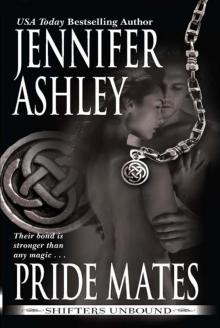 Pride Mates
Pride Mates The Duke's Perfect Wife
The Duke's Perfect Wife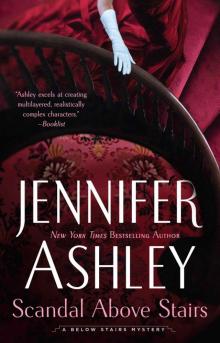 Scandal Above Stairs
Scandal Above Stairs White Tiger
White Tiger Midnight Wolf
Midnight Wolf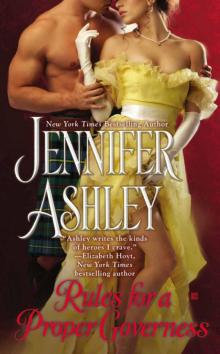 Rules for a Proper Governess
Rules for a Proper Governess Wild Wolf
Wild Wolf Bad Wolf
Bad Wolf Lion Eyes
Lion Eyes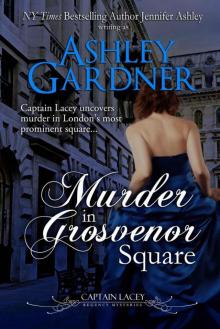 Murder in Grosvenor Square
Murder in Grosvenor Square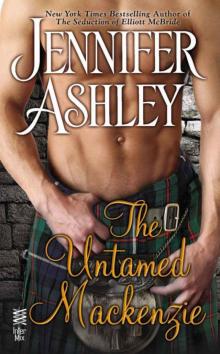 The Untamed MacKenzie
The Untamed MacKenzie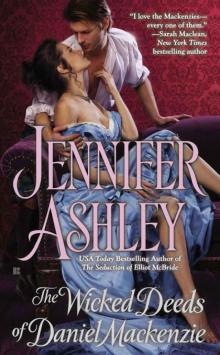 Wicked Deeds of Daniel Mackenzie
Wicked Deeds of Daniel Mackenzie Tiger Striped_Shifters Unbound
Tiger Striped_Shifters Unbound Murder Most Historical
Murder Most Historical Shifter Made
Shifter Made Mate Bond
Mate Bond Tiger Striped
Tiger Striped Bodyguard
Bodyguard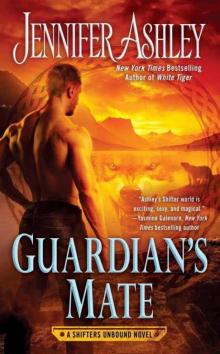 Guardian's Mate
Guardian's Mate From Jennifer Ashley, With Love
From Jennifer Ashley, With Love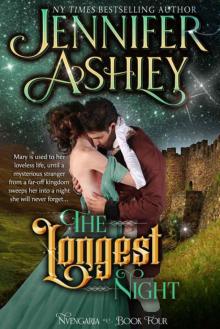 The Longest Night
The Longest Night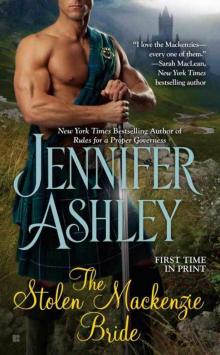 The Stolen Mackenzie Bride
The Stolen Mackenzie Bride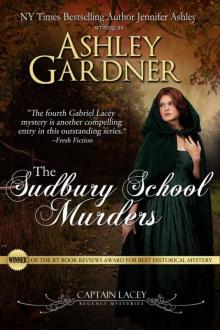 The Sudbury School Murders
The Sudbury School Murders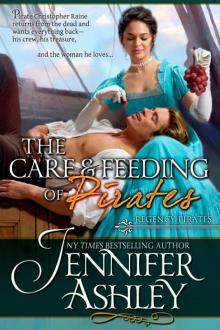 The Care & Feeding of Pirates
The Care & Feeding of Pirates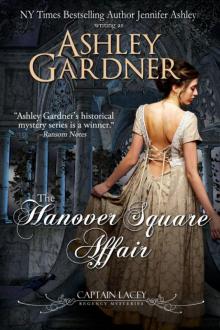 The Hanover Square Affair
The Hanover Square Affair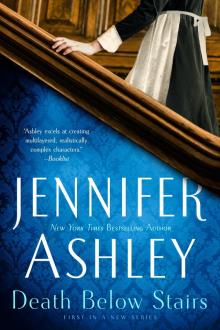 Death Below Stairs
Death Below Stairs Wild Things
Wild Things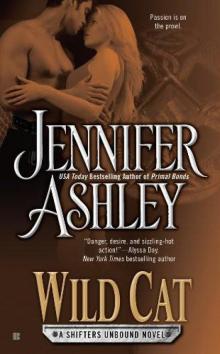 Wild Cat
Wild Cat The Gentleman's Walking Stick
The Gentleman's Walking Stick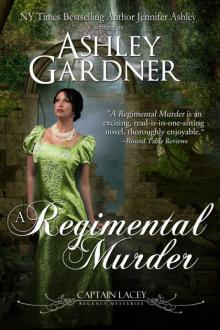 A Regimental Murder
A Regimental Murder Lone Wolf
Lone Wolf Forbidden Taste
Forbidden Taste Red Wolf
Red Wolf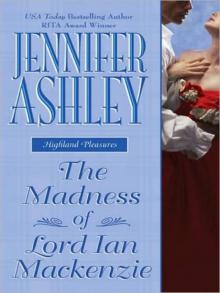 The Madness of Lord Ian Mackenzie
The Madness of Lord Ian Mackenzie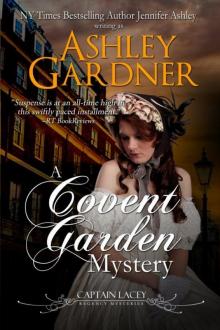 A Covent Garden Mystery
A Covent Garden Mystery The Pirate Next Door
The Pirate Next Door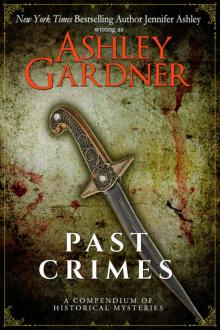 Past Crimes: A Compendium of Historical Mysteries
Past Crimes: A Compendium of Historical Mysteries Highlander Ever After
Highlander Ever After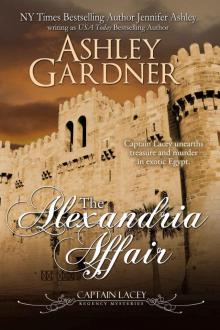 The Alexandria Affair
The Alexandria Affair A Shifter Christmas Carol
A Shifter Christmas Carol The Devilish Lord Will
The Devilish Lord Will Adam
Adam Kyle (Riding Hard Book 6)
Kyle (Riding Hard Book 6)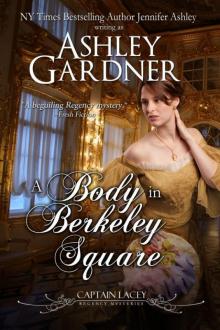 A Body in Berkeley Square
A Body in Berkeley Square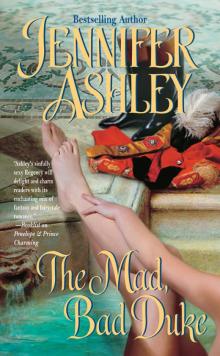 The Mad, Bad Duke
The Mad, Bad Duke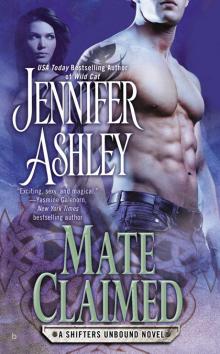 Mate Claimed
Mate Claimed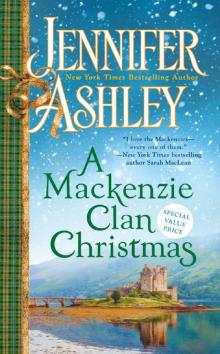 A Mackenzie Clan Christmas
A Mackenzie Clan Christmas The Seduction of Elliot McBride
The Seduction of Elliot McBride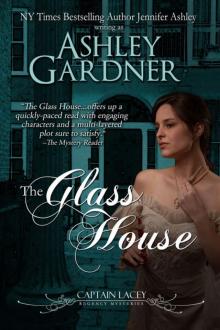 The Glass House
The Glass House Iron Master (Shifters Unbound Book 12)
Iron Master (Shifters Unbound Book 12)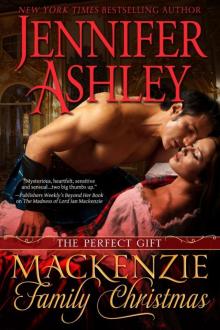 A Mackenzie Family Christmas: The Perfect Gift
A Mackenzie Family Christmas: The Perfect Gift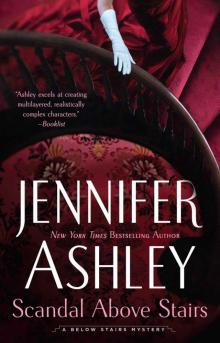 Scandal Above Stairs_A Below Stairs Mystery
Scandal Above Stairs_A Below Stairs Mystery Perfect Mate
Perfect Mate Murder in the East End
Murder in the East End Snowbound in Starlight Bend
Snowbound in Starlight Bend Hard Mated
Hard Mated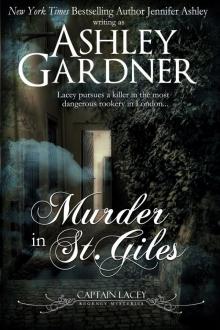 Murder in St. Giles
Murder in St. Giles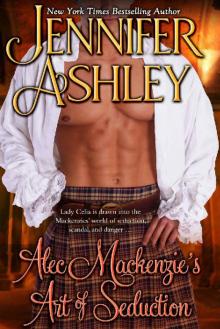 Alec Mackenzie's Art of Seduction
Alec Mackenzie's Art of Seduction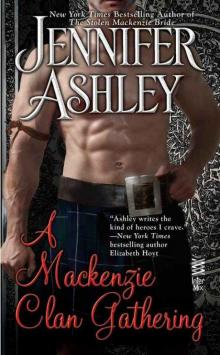 A MacKenzie Clan Gathering
A MacKenzie Clan Gathering Tyler
Tyler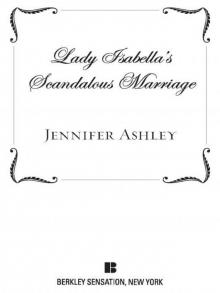 Lady Isabella's Scandalous Marriage
Lady Isabella's Scandalous Marriage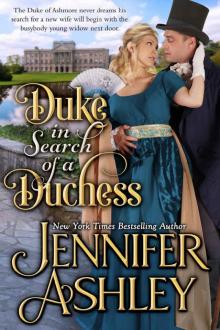 Duke in Search of a Duchess: Sweet Regency Romance
Duke in Search of a Duchess: Sweet Regency Romance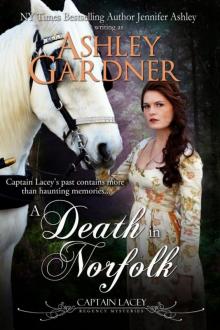 A Death in Norfolk
A Death in Norfolk Give Me One Night (McLaughlin Brothers Book 4)
Give Me One Night (McLaughlin Brothers Book 4) Iron Master
Iron Master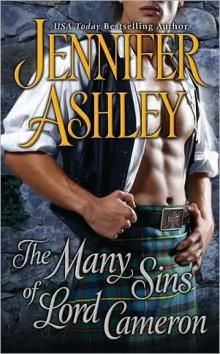 The Many Sins of Lord Cameron
The Many Sins of Lord Cameron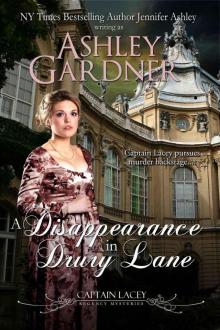 A Disappearance in Drury Lane
A Disappearance in Drury Lane Never Say Never (McLaughlin Brothers Book 3)
Never Say Never (McLaughlin Brothers Book 3) Death in Kew Gardens
Death in Kew Gardens Ross: Riding Hard, Book 5
Ross: Riding Hard, Book 5 Ray: Riding Hard
Ray: Riding Hard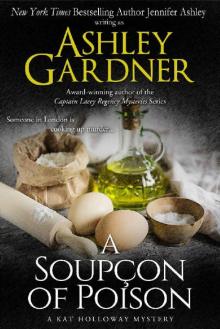 A Soupçon of Poison
A Soupçon of Poison Tiger Magic
Tiger Magic The Pirate Hunter's Lady
The Pirate Hunter's Lady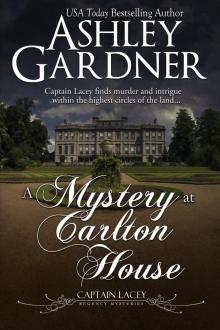 A Mystery at Carlton House
A Mystery at Carlton House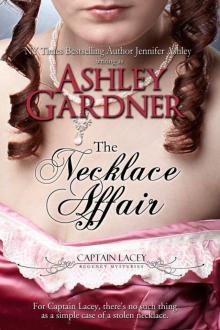 The Necklace Affair
The Necklace Affair Wolf Hunt
Wolf Hunt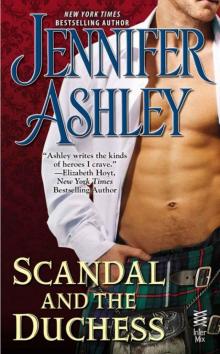 Scandal and the Duchess
Scandal and the Duchess Kyle
Kyle Why Don't You Stay? ... Forever (McLaughlin Brothers Book 2)
Why Don't You Stay? ... Forever (McLaughlin Brothers Book 2)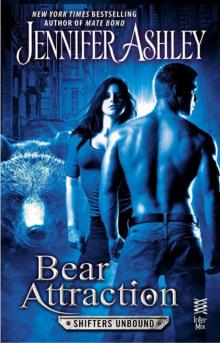 Bear Attraction
Bear Attraction The Gathering
The Gathering A Mackenzie Yuletide
A Mackenzie Yuletide Wild Things (Shifters Unbound #7.75)
Wild Things (Shifters Unbound #7.75) The Redeeming
The Redeeming The Seduction of Elliot McBride hp-5
The Seduction of Elliot McBride hp-5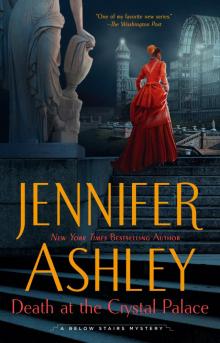 Death at the Crystal Palace
Death at the Crystal Palace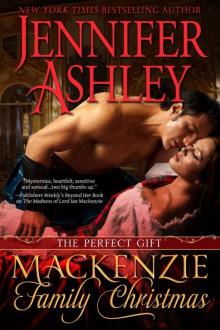 Mackenzie Family Christmas: The Perfect Gift (highland pleasures)
Mackenzie Family Christmas: The Perfect Gift (highland pleasures) Forbidden Taste: A Vampire Romance (Immortals)
Forbidden Taste: A Vampire Romance (Immortals)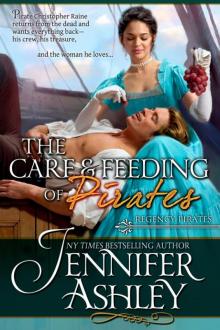 Care and Feeding of Pirates
Care and Feeding of Pirates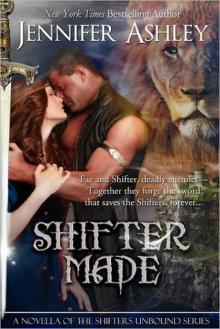 Shifter Made (shifters unbound)
Shifter Made (shifters unbound) Dark and Dangerous: Six-in-One Hot Paranormal Romances
Dark and Dangerous: Six-in-One Hot Paranormal Romances The Duke’s Perfect Wife hp-4
The Duke’s Perfect Wife hp-4 The Seduction of Elliot McBride (Mackenzies Series)
The Seduction of Elliot McBride (Mackenzies Series)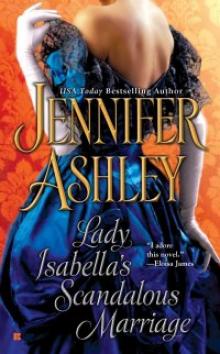 Lady Isabella's Scandalous Marriage hp-2
Lady Isabella's Scandalous Marriage hp-2 BodyGuard (Butterscotch Martini Shots Book 2)
BodyGuard (Butterscotch Martini Shots Book 2)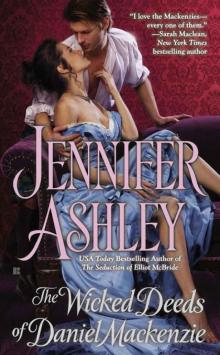 The Wicked Deeds of Daniel Mackenzie hp-6
The Wicked Deeds of Daniel Mackenzie hp-6 Tiger Magic su-5
Tiger Magic su-5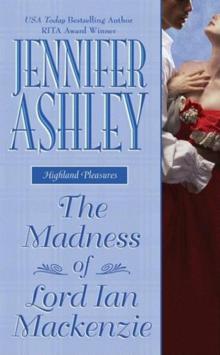 The Madness Of Lord Ian Mackenzie hp-1
The Madness Of Lord Ian Mackenzie hp-1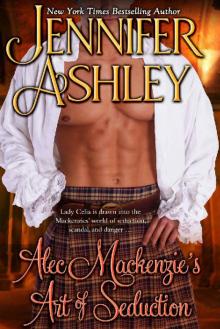 Alec Mackenzie's Art of Seduction: Mackenzies (Mackenzies Series Book 9)
Alec Mackenzie's Art of Seduction: Mackenzies (Mackenzies Series Book 9)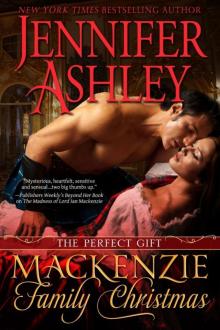 Mackenzie Family Christmas: The Perfect Gift
Mackenzie Family Christmas: The Perfect Gift Bodyguard (Shifters Unbound #2.5)
Bodyguard (Shifters Unbound #2.5) Midnight Wolf (A Shifters Unbound Novel)
Midnight Wolf (A Shifters Unbound Novel) White Tiger (A Shifter's Unbound Novel)
White Tiger (A Shifter's Unbound Novel) Cowboys Last All Night
Cowboys Last All Night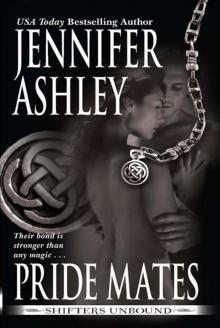 Pride Mates su-1
Pride Mates su-1 Hard Mated (shifters unbound )
Hard Mated (shifters unbound ) Bodyguard (shifters unbound )
Bodyguard (shifters unbound ) Snowbound in Starlight Bend: A Riding Hard Novella
Snowbound in Starlight Bend: A Riding Hard Novella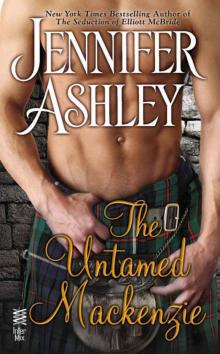 The Untamed Mackenzie (highland pleasures)
The Untamed Mackenzie (highland pleasures)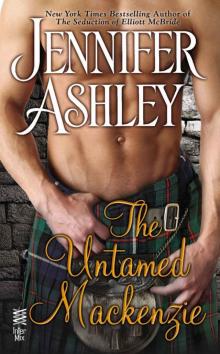 The Untamed Mackenzie (Mackenzies Series)
The Untamed Mackenzie (Mackenzies Series)![Highland Pleasures [6] The Wicked Deeds of Daniel Mackenzie Read online](http://i1.bookreadfree.com/i2/04/07/highland_pleasures_6_the_wicked_deeds_of_daniel_mackenzie_preview.jpg) Highland Pleasures [6] The Wicked Deeds of Daniel Mackenzie
Highland Pleasures [6] The Wicked Deeds of Daniel Mackenzie Lone Wolf (shifters unbound)
Lone Wolf (shifters unbound)![Shifters Unbound [5] Tiger Magic Read online](http://i1.bookreadfree.com/i2/04/11/shifters_unbound_5_tiger_magic_preview.jpg) Shifters Unbound [5] Tiger Magic
Shifters Unbound [5] Tiger Magic Tyler (Riding Hard Book 4)
Tyler (Riding Hard Book 4) Ross
Ross Bad Boys of the Night: Eight Sizzling Paranormal Romances: Paranormal Romance Boxed Set
Bad Boys of the Night: Eight Sizzling Paranormal Romances: Paranormal Romance Boxed Set From Jennifer Ashley, With Love: Three Paranormal Romances from Bestselling Series
From Jennifer Ashley, With Love: Three Paranormal Romances from Bestselling Series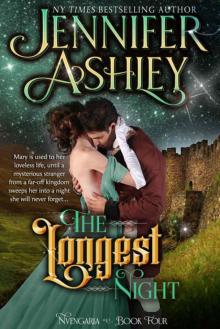 The Longest Night: Fantasy Romance (Nvengaria Book 4)
The Longest Night: Fantasy Romance (Nvengaria Book 4)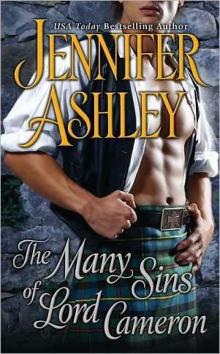 The Many Sins of Lord Cameron hp-3
The Many Sins of Lord Cameron hp-3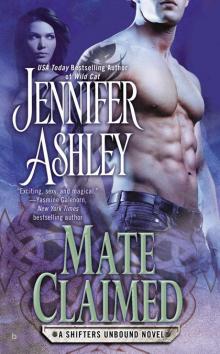 Mate Claimed su-4
Mate Claimed su-4